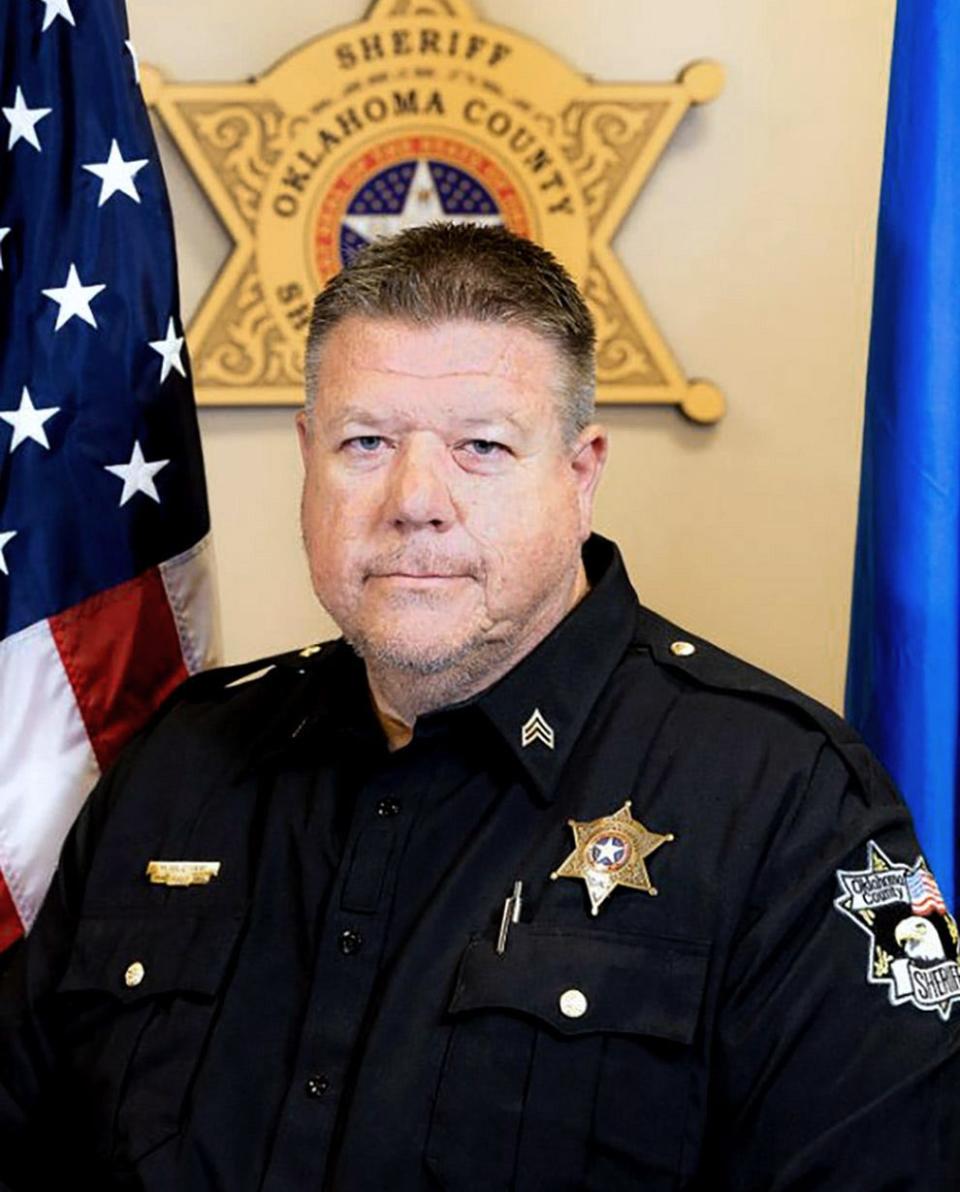Actions of deputy doctor and colleague save overdose victim's life
One man can thank fate that two quickly responding law officers — including one who is a practicing physician — were able to save him from death.
Heath Oldham, a chiropractor who works full time as a patrol sergeant with the Oklahoma County Sheriff's Office, worked with Harrah Police Sgt. Chris Griffin to save the unidentified victim on Sunday after he stopped breathing while suffering from what is believed to have been a fentanyl overdose.
More:Motel described as 'fentanyl den' of OKC sees surging homicides and crime
The officers were called to the scene at the SE 29 exit from the Kickapoo Turnpike by a woman who was with the man.
As Oldham arrived, the 29-year-old man was in full cardiac arrest and not breathing, Oklahoma County Sheriff Tommie Johnson III said. Oldham began chest compressions on the victim immediately, Johnson said.
Once Harrah's Sgt. Griffin arrived, Oldham asked his colleague to grab doses of Narcan out of his patrol unit.
After the victim was given two doses of the quick-acting drug while Oldham continued to perform CPR, the man's heart began beating again and his breathing was restored.
The victim, who was not identified by the sheriff's office, was transported by ambulance to an area hospital and is expected to survive.

Oldham credits their ability to save the man both to first-aid training all sheriff's office deputies receive and to the fact that Johnson makes sure deputies are supplied with Narcan doses. The drug is a critical key to saving lives in those types of situations, he said.
The drug, Oldham said, is administered as a nasal spray to overdose victims, allowing it to be immediately absorbed into a person's blood to help negate the effects of opioids.
More:US overdose deaths hit record last year, with 923 in Oklahoma alone, CDC says
"Hands down. I have seen multiple doses have to be given to overdose patients. In this case, two doses worked and he came back," he said.
As for his medical background? Oldham said it certainly didn't hurt.
"In this instance, it was very helpful. I knew that keeping his blood flowing was by far the most important thing," Oldham said. "He was gone. He had no breath and no pulse. It was at a point to where if he hadn't have received help, he wouldn't have made it."
Officials: Opioid overdoses continue to plague U.S. residents
Johnson said during a Wednesday news conference about the rescue that the U.S. Centers for Disease Control and Prevention estimates there were 107,622 drug overdoses in the United States during 2021, an increase of nearly 15% over 2020's numbers.
The sheriff described fentanyl as a cheap, easily produced synthetic opioid that is 50 times more potent than heroin, 100 times stronger than morphine, and often added to drugs like cocaine and heroin to increase their potencies.
While some drug abusers seek out fentanyl, many other unsuspecting drug users have no idea what they are consuming before an overdose happens, Johnson said.
A dose equal to "a grain of salt amount can kill you," he said.
"We want to thank both of these men … for their quick actions in understanding and knowing what was going on at the scene. That is stuff that we train on all the time, and it was good to see it made good in real time when it really counted. Seconds mattered."
Oldham describes Sunday's incident as "a little unusual" because deputies typically see fentanyl doses involving people inside of homes or apartments. He said the overdose call that day was the third deputies had responded to just in the past week.
As for why he chooses to split time between working as a deputy and as a chiropractor, he said both enable him to serve.
"Being service minded is my passion. I love this job, being in the community and on the street (and) helping people just like this young man."
This article originally appeared on Oklahoman: Deputy doctor works with colleague to save man from fentanyl overdose

